In contemporary humanitarian crises, handling the dead presents significant practical and ethical challenges. With a significant number of armed conflicts occurring in Muslim contexts, understanding how Islamic law mandates dignified treatment of the deceased is essential to ensure that forensic interventions align with cultural and legal norms.
In this post, Dr Ahmed Al‑Dawoody, ICRC Legal Adviser for Islamic Law, examines how Islamic legal traditions address matters such as collective burial, rapid interment, exhumation, autopsy, burial at sea, and gender‑sensitive handling of remains. He argues that these rules both reinforce and complement international humanitarian law (IHL), offering forensic practitioners culturally grounded pathways to uphold the dignity of the dead while navigating operational realities in Muslim‑majority settings.
In many civilizations, traditions and religions—both ancient and modern—death is a mere transitional phase between one stage of life and another.[1] Burying the dead is one way to ensure that the dead are accorded dignity and respect and that the feelings of their living loved ones are considered. Throughout history, religions, traditions and cultural practices have influenced the ways in which the dead are managed both in times of peace and conflict. Today, they continue to do so.
In Islam, human dignity is a right given by God to all humans—who are referred to in the Qur’ān as God’s vicegerents on earth. Islam grants certain rights to humans before they are even born and others after their death. Whether dead or alive, the human body—created by God in the perfect shape—must be given dignity and respect. This importance of the human body is illustrated, for instance, in the Qur’ān 5:31. There, it is narrated that when Cain was unsure of how to deal with the body of his brother Abel—whom he had murdered—God sent a message in the form of a raven. God used the raven to dig into the ground to bury another raven, thus indirectly showing Cain how to bury his brother’s body.
Faced with the difficulties of ensuring the dignified burial of the dead in the context of armed conflicts and other situations of violence and natural disasters, classical Muslim jurists developed Islamic laws to deal with the challenge. These laws aim to respect the dignity of the dead and respect the feelings of their loved ones to the degree possible. The dignity of the dead surfaced in the discussions of the classical Muslim jurists[2] on a number of issues. Some of the most significant of which, for our purposes here, are: searching for and collecting the dead, disposal of Muslim and non-Muslim mortal remains, quick burial, exhumation of human remains and burial at sea.
Before delving into these issues, it is worth noting that Islamic law at times combines purely legal rules with religious and/or ethical matters. This is the case as well with the management of the dead. For instance, burial and grave regulations are deliberated in the Islamic legal literature along with the etiquette of visiting graves. Combining legal and ethical elements is an important characteristic of Islamic law that helps keeps it alive. It helps ensure that Muslims voluntarily impose such rules upon themselves and that they keep practicing even with regard to aspects that are not codified in Muslim States’ legal systems and over which courts have no jurisdiction. This nature of Islamic law points to the impact Islamic law can have in influencing societal behavior. Understanding these Islamic rules can help guide humanitarian forensic specialists to overcome challenges they face by respecting the religious needs of Muslim societies when they work in Muslim contexts. It is a way to show that respecting the dead is the common overriding concern of both their forensic work and Islamic law.
The search for and collection of the dead
The dead are usually remembered. They sometimes remain alive in the hearts and minds of their loved ones, as well as through historical accounts for decades, for centuries or even forever. Hence, in Islamic historical literature, we find remarkable documentation of the lists of war fatalities from early battles that took place during the lifetime of Prophet Muhammed—mainly between 624 and 632. For example, a quick Google search reveals some of these historical records. The full names of seventy fatalities from the adversary party and fourteen fatalities from the Muslim party at the battle of Badr in March 624 is documented.[3] A similar number of Muslim fatalities is recorded in the battle of Uḥud in March 625.[4] These early sources also show that women played a role in searching for the dead and in repatriating the injured and dead back to their cities, among other roles they took on.[5]
Early Islamic sources reflect a longstanding practice where parties to conflicts documented fatalities, sometimes in great detail.[6] Accounting for the dead was the first and obvious obligation in the process of respecting the dead bodies of the martyrs. As we will see below, martyrs enjoy a special place in Islam. It is because of their heroism and sacrifices that Islam has survived until the present. Therefore, these Islamic sources are still being studied today to commemorate the heroism and sacrifices of the early Muslim martyrs.
Disposal of dead bodies
Respecting the mortal remains of the deceased necessitated decently burying them in order to prevent their bodies from being preyed upon by wild animals. Decent burial was also necessary to allow their families and loved ones to visit their graves. Such concerns remain relevant today.
The burial of the deceased is a collective obligation (farḍ kifāyah) on the Muslim community.[7] Because it is a collective obligation the entire Muslim community will be guilty if a Muslim body is not buried, unless the burial was beyond their knowledge or capacity.
The rule in Islamic law is that every dead body should be buried in an individual grave. However, in cases of necessity, two or three bodies—or even more if needed—can be buried in the same grave. Today, collective graves—usually for members of the same family—are common in many Muslim countries, simply because of a shortage of space for graveyards in villages, or because the cost of individual graves is too high. It should be noted here that in case of multiple burials, bodies must be placed respectively side by side with suitable space between each. This is also the practice followed now by forensic specialists when they carry out their investigations. There are different Islamic rulings (as well as cultural and traditional practices) throughout the Muslim world governing the building of graves.
It is important to point out here that classical Muslim jurists developed a separate set of rules for the disposal of the body of the shahīd (martyr), plural shuhadā’. The battles of Badr in March 624 and Uḥud in March 625 provide the precedents upon which the rules for handling dead bodies of non-Muslims and Muslims were derived. Their significance stems from the fact that they witnessed the highest number of fatalities between the Muslims and their enemies during the lifetime of Prophet Muhammed.
Most Muslim jurists—two main exceptions being Sa‘īd ibn al-Musayyab (d.712-3) and al-Ḥasan al-Baṣrī (d.728)—agree that the following three rules should be observed exclusively in the case of the martyrs.
First, there should be no ritual washing for the body of the martyr. This majority understanding has been the norm and practice throughout Islamic history and remains so today. The rule endures despite the fact that there are a host of divergent opinions among the jurists. The different interpretations arose because of conflicting reports attributed to the Prophet. Ibn al-Musayyab and al-Baṣrī based their opinion mainly on logistical considerations. They argued that the martyrs of the battle of Uḥud were buried without the ritual purification because it was not practically possible to bring water from Medina to the battlefield in the desert for such a number of dead bodies.[8] However, the majority based their ruling on various theological rationales, including that burying the martyrs in their blood is a testimony of their great status and the sacrifices they made in the Islamic just war.
Second, there should be no shrouding of the martyrs and they should be buried in the same clothes in which they are killed.
Third, no funeral prayer should be performed on the body of the martyrs. As in the case of ritual washing, some jurists explain this rule by following the precedent set by Prophet Muhammed in the battle of Uḥud. Others give theological rationales to the rule. These rationales relate to the special status of the martyrs and the view that they are alive in the presence of their God, Qur’ān 3:169, as well as the view that their sins are already forgiven and therefore no funeral prayer is needed for them.[9]
The importance of celebrating and commemorating the status of the martyrs continues today in modern Muslim cultures. For example, there are images of martyrs hanging in the streets of Iran, Egypt, Lebanon and Syria and there are schools, streets etc., named after martyrs.
Because of the prominent place that martyrs occupy under Islamic law and in Muslim cultures and traditions, it is important that those who handle the bodies of Muslims classified as martyrs take these three specific rules (as well as any other relevant rules) into consideration. In any case, such decisions are left to the family of the deceased.
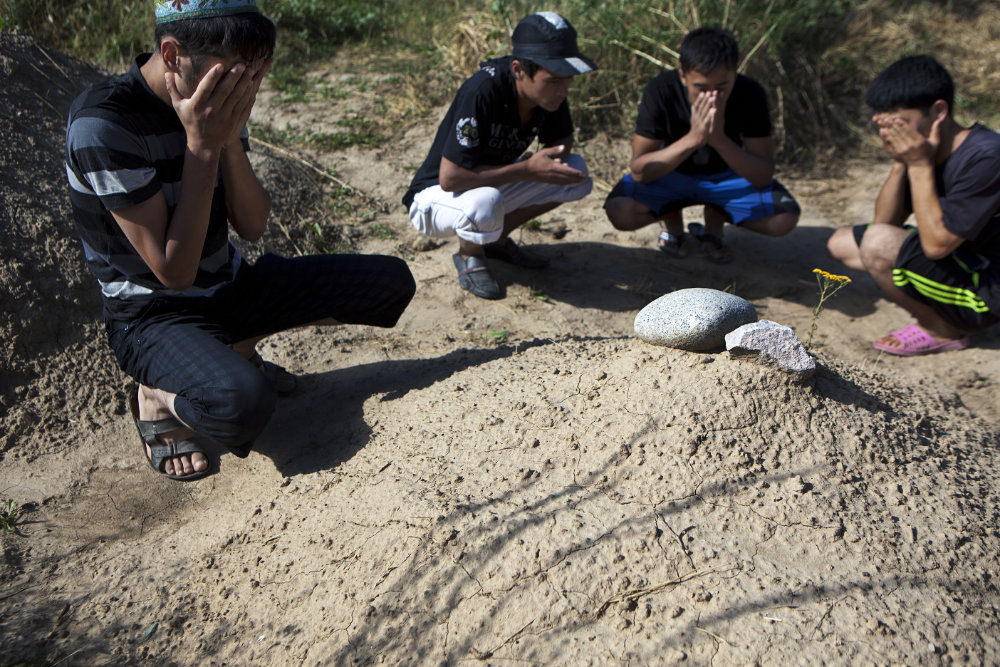
In addition to its detailed rules pertaining to martyrs, Islamic law also contains rules on the burial of both Muslim and non-Muslim enemies. Specifically, there is a duty to bury dead bodies of the adverse party. If for any reason the non-Muslim adverse party does not bury its dead, then it becomes the obligation of the Muslims to do so. The Andalusian jurist Ibn Ḥazm (d. 1064) justifies this obligation by arguing that if Muslims do not bury the dead bodies of their enemy, the bodies will decompose or be eaten by beasts or birds. Such an outcome would be tantamount to mutilation, which is prohibited under Islamic law.[10]
The rationale behind the obligation to bury the enemy’s dead—if that adverse party does not bury their own dead—is to protect the human dignity of the dead. Such protection, although not mentioned in classical Islamic law texts, also contributes to respecting the feelings of adverse parties’ families. In addition, some jurists also argued that burying the bodies of the enemy serves the maṣlaḥah (public interest) of Muslims in that it prevents health risks to the passersby and thus provides a public health role.[11] Notwithstanding this argument, it should be noted that a common misunderstanding exists that the dead spread disease and therefore pose public health risks. There are, of course, exceptions to this misconception—such as in the case of Ebola.
Quick burial
Respect for dead bodies manifests itself in diverse ways in different cultures around the world. In Islamic law and Muslim cultures, burying the dead in the ground is the correct way to respect dead bodies. Cremation is prohibited under Islamic law because, unlike in some cultures, it is considered a violation of the dignity of the human body.
Based on reports attributed to Prophet Muhammed it is mustaḥab (or preferred)—i.e., not farḍ/wājib (compulsory)—to bury the dead bodies quickly. The reports, however, do not give specific indications on how quickly burial should be undertaken. In some particular cases—like that of al-maṭ‘ūn (a plague-ridden person), al-maflūj (a hemiplegic person) and al-masbūt (a comatose person)—certain jurists advocate that it is preferred for Muslims to wait for yaūm wa laylah (a day and a night) until the death of such persons is confirmed.[12] The reason for waiting in these three cases is simply because there is a possibility that the individuals in question are not yet dead—they could be in a coma. Therefore, the jurists preferred that the burial should be delayed until death is confirmed.
Another exception to quick burial is if there is a suspicion that death is due to criminal action. In that case, burial is to be postponed until the body is examined. Finally, a few jurists consider that another reason to postpone the burial of a dead body, unless it would mean the body would decay, is to wait for the arrival of the deceased’s relatives.[13]
These discussions on the timeframe for burial do not change if the dead body is unclaimed or unidentified. In those cases, the same rules just discussed for respecting the dead apply. The humanitarian concern of respecting dead bodies prompts Muslims to quickly bury unclaimed or unidentified bodies.
Apart from these Islamic legal deliberations, other factors play a major role in why different cultures and traditions may have a tendency to bury the dead quickly. One main concern is that relatives and neighbours might want to prevent the body from emitting an odor. This can particularly be true in countries where temperatures are high and there are insufficient means to refrigerate the dead bodies, where electricity blackouts occur frequently, or in remote desert villages that lack electricity completely. Another reason for quick burial could be that the extended family and neighbours want to alleviate the pain that family members and their loved ones might suffer. Burying the dead body quickly can reduce fear and anxiety that the deceased’s body might decay and give off the odor of death. In both situations, quick burial is motivated by the desire to respect the dead bodies.
Regardless of the reason, quick burial of the dead can, in some cases, hinder the work of forensic specialists. Forensic specialists need sufficient time to establish the identities of the dead bodies. This is especially true in cases of armed conflicts and other situations of violence and natural disasters. Therefore, for forensic specialists to be able to carry out their job, it is necessary to provide refrigerators to keep dead bodies cool. It is also necessary to engage with community and religious leaders and local authorities in order to convince the public and the relatives of the dead that forensic specialists need sufficient time to examine the bodies. Otherwise, families of the dead risk the pain of being unable to identify their loved ones and unable to visit their graves.
Exhumation of human remains
In general, one cannot exhume graves under Islamic law. However, there are a number of exceptions and some differences in views. Therefore, classical Muslim jurists agreed there is a prohibition on exhuming graves unnecessarily. Jurists did, however, deliberate on the permissibility of doing so in a several cases, including hypothetical ones. Exhuming graves was deliberated for
(1) religious purposes (or what is described in Islamic parlance as the rights of God),[14]
(2) civil liability cases (rights of humans),[15] and even
(3) public interest considerations.[16]
Various jurists have developed different rulings on the matter. As a result, exhumation of human remains is permissible in some cases and prohibited in others. The prohibition is grounded mainly on the jurists’ discretion of what constitutes disrespect for human dignity. The permissibility is based on the jurists’ discretion of what constitutes the public interest of the Muslim community. The different rationales upon which these jurists base their views explains the different rulings they developed, and the various practices adopted in the Muslim societies accordingly. What is important to note here for forensic specialists is that there can be Islamic legal grounds for exhumation of graves under certain circumstances. This can be kept in mind if forensic specialists face rejection of exhuming dead bodies in Muslim contexts.
Burial at Sea
Interestingly, classical Muslim jurists deliberated the question of burial at sea going as far back as the seventh and eighth centuries. The rationale behind their discussions of this question appears to be the need to ensure decent burial when death would take place on ships at sea. In this situation, the classical Muslim jurists’ position envisaged three different circumstances:
- First, if it is possible to wait until the ship reaches shore without the body decaying, then burial should be postponed until that time. Once on shore the body should be buried as usual in a grave.[17]
- Second, if it is not possible to wait until reaching shore and if the nearest shore is inhabited by Muslims, then the body should be tied to pieces of wood in the water and left to float to shore. The Muslims there should respect the dead body and honourably bury it.
- Third, if it is not possible to wait until reaching shore and if the nearest shore is inhabited by enemies who may desecrate the dead body of the Muslims, then the dead body should be tied to a heavy material and be lowered into the sea.[18]
In any case, whether or not the dead body will be buried at the sea, the Islamic burial rituals must be performed in accordance with the rules set out above.
Conclusion
Time and again, ensuring the dignified burial of the dead emerges as constant criterion in the discussion above. The classical Islamic legal framework laid out here was developed in the seventh and eighth centuries in response to the circumstances of that time. Yet, today it still remains the guiding Islamic legal framework that any Muslim jurist will refer to on the subject of the management of the dead.
This information—from an Islamic law perspective—is necessary for any forensic specialists working in Muslim societies today to ensure respect for the dead. In order to be able to make more informed decisions and to communicate more effectively, it is recommended that forensic specialists familiarize themselves with both the Islamic regulations on the management of the dead and in how far the cultural practices in these societies correspond with Islamic law. Some practices—such as quick burial and the objections against exhumation of the dead—may constitute challenges to the forensic specialists’ work. In such cases engaging with Islamic institutions, scholars, and community leaders becomes inevitable.
There is no doubt that the specialized forensic expertise that institutions such as the ICRC have developed are indispensable for achieving the protection of dead bodies in contemporary armed conflicts in Muslims contexts. Nonetheless, the cooperation between humanitarian forensic specialists and Islamic jurists in addressing such challenges is essential for ensuring the proper and dignified treatment of dead bodies in Muslim contexts. It is never too late to learn the lesson the raven taught us.
References
[1] See e.g., Dignity in death: Remembrance and the voice of the dead, Oran Finegan, Nov. 2017.
[2] It is worth noting here that in Islamic legal tradition, Muslim jurist discussions have a particular interpretive weight. They are more than discussions. Rather, they mean deliberations, legal argumentation, legal rulings or Islamic legal manuals that should be taken into account when interpreting Islamic law. These classical Islamic rules still constitute the body of Islamic law that Muslim jurists refer to as the reference. On the main principles regulating how force is used under the Islamic law of war, see IHL and Islam: An overview, Ahmed Al-Dawoody, March 2017.
[3] See http://www.alukah.net/sharia/0/87094/; http://www.alukah.net/sharia/0/87231/.
[4] Muḥammad ibn Isḥāq,Al-Sīrah al-Nabawiyyah, ed. ‘Abd al-Malik ibn Hishām, annotated by Fu’ād ibn ‘Alī Hḥāfiẓ (Beirut: Dār al-Kutub al-‘Ilmiyyah, 2004), vol. 2, pp. 354-356.
[5] Early Islamic history literature indicates that women played a mainly humanitarian role on the battlefield, although there were some women who fought in battles. Women treated the injured, looked after the sick, prepared food, and repatriated the injured and the dead back to their cities. Their humanitarian acts and services resemble those provided by health care personnel and aid societies in contemporary armed conflicts. See, for example, ḥadīth number 1812 in Muslim ibn al-Ḥajjāj al-Qushayrī, Ṣaḥīḥ Muslim, ed. Muḥammad Fū’ād ʻAbd al-Bāqī (Beirut: Dār Iḥyā’ al-Turāth al-ʻArabī, n.d.), Vol. 3, p. 1447; ḥadīth number 1065 in A. ibn Ḥanbal, above note 3, Vol. 5, p. 84; ḥadīth number 33650 in ʻAbd Allah ibn Muḥammad ibn Abī Shaybah, Al-Kitāb al-Muṣannaf fī al-Aḥādīth wa al-Āthār, ed. Kamāl Yūsuf al-Ḥūt (Riyadh: Maktabah al-Rushd, 1988), Vol. 6, p. 537; Wahbah al-Zuḥaylī,Mawsūʻah al-Fiqh al-Islāmī wa al-Qaḍāyā al-Muʻāṣirah (Damascus: Dār al-Fikr, 2010), vol. 7, p. 437.
[6] See e.g., ibn Isḥāq,Al-Sīrah al-Nabawiyyah, vol. 1, pp. 343 f.; al-Zuḥaylī,Mawsūʻah al-Fiqh al-Islāmī wa al-Qaḍāyā al-Muʻāṣirah, vol. 7, p. 448.
[7] See fatwā number 4263 given by the current Grand Mufti of Egypt on 24 January 2018, http://www.dar-alifta.gov.eg/ar/ViewFatwa.aspx?ID=14229&LangID=1
[8] ‘Abd al-Raḥman ibn Gharmān ibn ‘Abd Allah al-Karimī Al-‘Umarī, Aḥkām al-Shahīd fī al-Fiqh al-Islāmī (Al-Ṭā’if: Maktabah Dār al-Bayān al-Ḥadīthah, 2001), pp. 248-251.
[9] Aḥmad ibn Muḥammad ibn Salāmah al-Ṭaḥāwī, Tawḍīḥ ba‘ḍ al-Muṣṭalaḥāt al-‘Ilmiyyah fī Sharḥ al-‘Aqīdah al-Ṭaḥāwiyyah: Wa ma‘ah al-As’ilah wa al-Ajwibah al-Murḍiyah ‘alā Sharḥ al-Ṭaḥāwiyyah, ed. Muḥammad ibn ‘Abd al-Raḥman al-Khamīs (Kuwait: Dār Ilāf, 1999), p. 214. See Asma Afsaruddin, Striving in the Path of God: Jihād and Martyrdom in Islamic Thought (New York: Oxford University Press, 2013), pp. 102-105.
[10] ʻAlī ibn Aḥmad ibn Saʻīd ibn Ḥazm, Al-Muhallā, ed. Committee of the Revival of Arabic Heritage (Beirut: Dār al-Āfāq al-Jadīdah, n.d.), Vol. 5, p. 117.
[11] See al-Zuḥaylī, Mawsūʻah al-Fiqh al-Islāmī wa al-Qaḍāyā al-Muʻāṣirah, Vol. 7, p. 445; ‘Abd Allah ibn ‘Umar ibn Muhammed ibn al-Saḥaybānī, Aḥkām al-Maqābir fī al-Sharī‘ah (Al-Damamn: Dār ibn al-Jawzī, 2005), p. 233.
[12] See Aḥmad ibn ʻAlī ibn Ḥajar al-ʻAsqalānī, Fatḥ al-Bārī Sharhḥ Ṣaḥīḥ al-Bukhārī, ed. Muḥib al-Dīn al-Khaṭīb (Beirut: Dār al-Maʻrifah, n.d.), Vol. 3, p. 184; Muḥammad ‘Abd al-Rahman ibn ‘Abd al-Rahīm al-Mubarkāfūrī, Tuḥfah al-Aḥwadhī bi-Sharḥ Jāmiʻal-Tirmidhī(Beirut: Dār al-Kutub al-‘Ilmiyyah, n.d.), Vol. 4, p. 82.
[13] See ‘Abd al-Ra’ūūf al-Mināwī, Fayḍ al-Qadīr Sharḥ al-Jāmi‘ al-Ṣaghīr (Cairo: Al-Maktabah al-Tujāriyyah al-Kubrā, [1937]), Vol. 3, p. 310.
[14] See e.g., Muḥammad al-Ghazālī, Al-Waṣīṭ fī al-Madhhab, ed. Aḥmad Maḥmūd Ibrāhīm and Muḥammad Muḥammad Tāmir, (Cairo: Dār al-Salām, [1997]), Vol. 2, p. 390; Muḥammad ibn Muḥammad ibn Aḥmad ibn al-Ikhwah, M‘ālim al-Qurbah fī Ṭalab al-Ḥisbah, ed. Muḥammad Maḥmūd Sha‘bān and Ṣiddīq Aḥmad ‘Isā al-Muṭī‘ī (Cairo: Al-Hay’ah al-‘Āmmah lil-Kitāb), p. 106, Ḥasan ibn ‘Ammār Shurunbulālī, Kitāb nūr al-Iḍāḥ wa Najāt al-Arwāḥ(Damascus: Dār al-Ḥikmah, 1985), p. 98.
[15] See e.g., al-Ghazālī, Al-Waṣīṭ, Vol. 2, p. 390; Shurunbulālī, Kitāb nūr al-Iḍāḥ wa Najāt al-Arwāḥ, p. 98; Ibn al-Ikhwah,M‘ālim al-Qurbah, p. 106.
[16] See e.g., Ibn al-Saḥaybānī, Aḥkām al-Maqābir fī al-Sharī‘ah, pp. 492 f.
[17] Muḥammad al-‘Arabī al-Qarawī, Al-Khulāṣah al-Fiqhiyyah ‘alā Madhhab al-Sādah al-Mālikiyyah (Beirut: Dār al-Kutub al-‘Ilmiyyah, n.d.), p. 157; Ibn al-Saḥaybānī, Aḥkām al-Maqābir fī al-Sharī‘ah, p. 43.
[18] Ibn al-Saḥaybānī, Aḥkām al-Maqābir fī al-Sharī‘ah, pp. 43-45.
See also:
- Ahmed Al-Dawoody, “Management of the dead from Islamic law and international humanitarian law perspectives: Considerations for humanitarian forensics”, International Review of the Red Cross, 2017
- Ahmed Al-Dawoody, IHL and Islam: An overview, March 14, 2017
- Dr Morris Tidball-Binz, “Managing the dead in catastrophes: guiding principles and practical recommendations for first responders”, International Review of the Red Cross, 2007


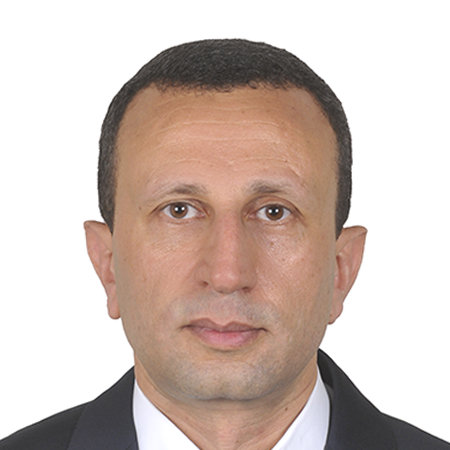
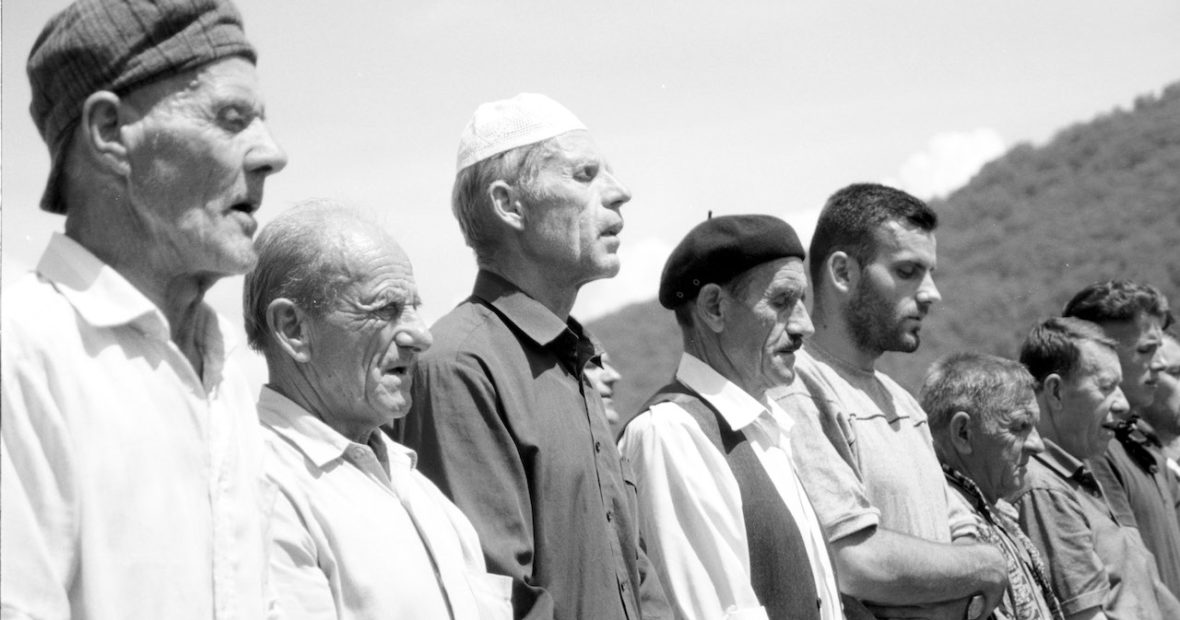
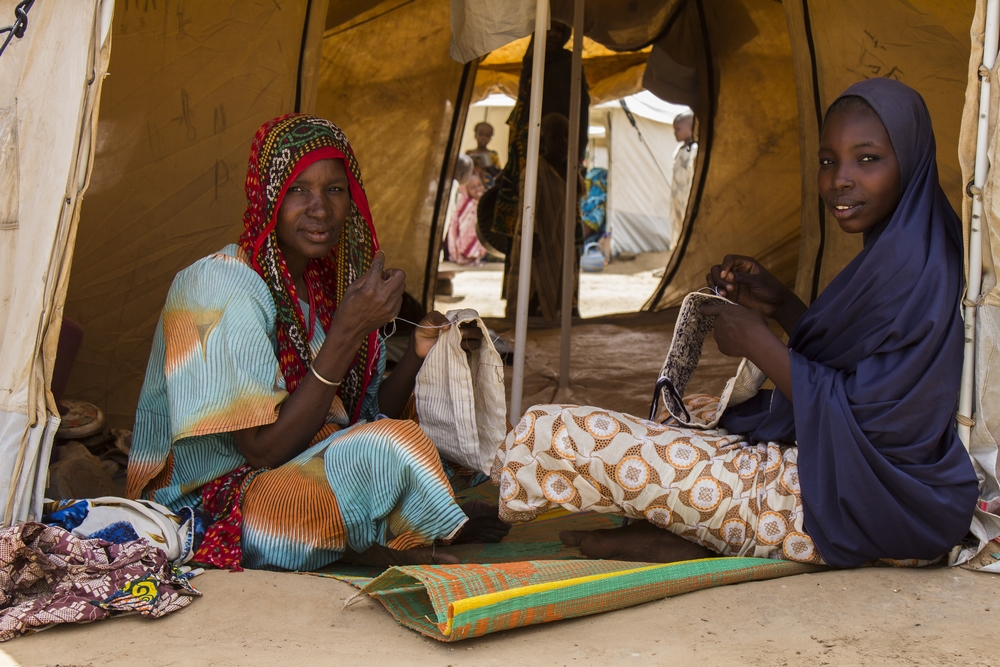
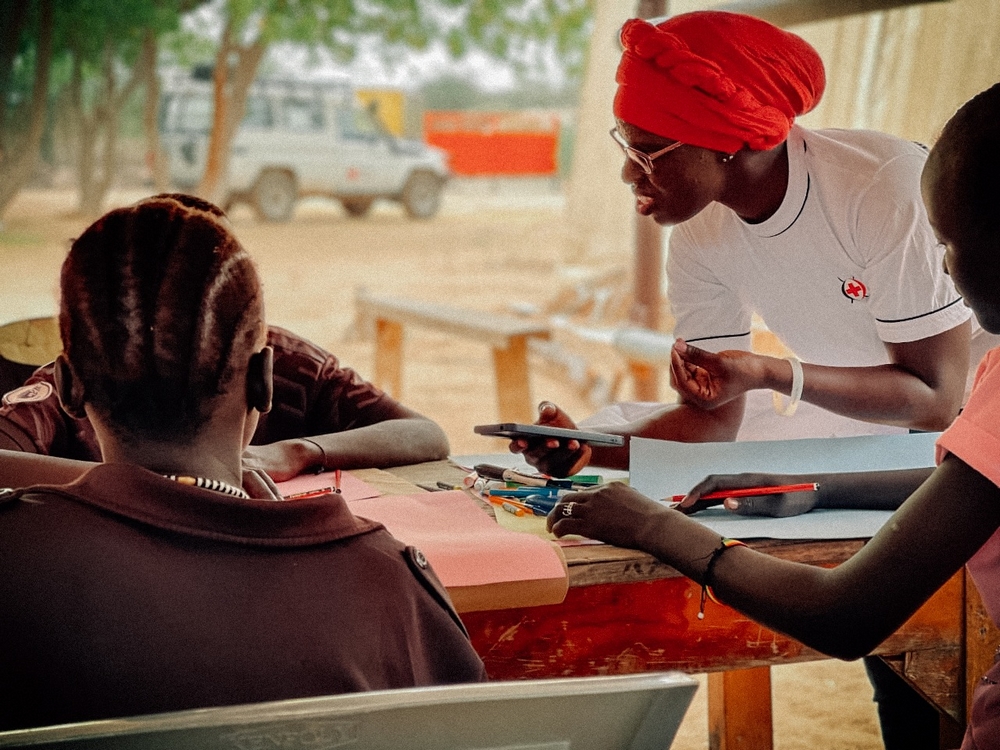
Highly informative and educative piece, it would be interesting to discuss this in the Nigerian context, especially as a number of states in the federal republic of Nigeria practice sharia law and are hubs of internal conflicts with a high death toll of Muslims.
This is a very incisive account on the treatment of the dead from Islamic point of view.
Not to mean any criticism, rather promoting cosmetic perfectionism of a perfect content, I would like to point to this sentence where, as I was reading, was found with a typo error:
This is also the practice followed now by forensic specialists when they when they carry out their investigations.
Thank you so much for finding that mistake!
Very informative piece. Do you have a French and Arabic version?
Thank you so much, Anne. Hopefully, both French and Arabic translations will be available in the next few months.
Hi please I want to ask if it’s permissable to eat during fredau prayer after someone dead….
thank you very nice website article
The links are broken. Please fix these as there’s urgent need for guidance for management of Corona Virus deaths.
Many thanks for flagging this issue. We are looking to restore these links as quickly as possible.
Dear Professor Ahmed
I am really impressed and enriched by your illuminating and thoughtful study which in fact predicted what’s happening nowdays concerning dealing with the pandemic virus Corona .
Your study pinpoint and address the hodgepodge and unconstructive argument regarding burying Corona victims .
You answered and also refuted all baseless allegations in this regard .
Finally I ask your permit to endlessly and fully make use of this helping study
Ayman Salama
Prof of International Law -Egypt
My question is what things a widow does that affect the husband in the grave. Ir that leas to the husband being punished in the grave.
اسلام علیکم و رحمت اللّه وبر کا ته…
Q: We all die sooner or later If I want to get buried in a foriengh and non muslim grave yard beside a non muslim friend is it premitted in islam? or ist better to get buried in motherlan and muslim country???
Many Muslims as well as others are unaware of the this subject matter. This article provides a broad perspective on the subject.
Thank you all those who contributed.
Thank you Akram, for reading and for sharing your thoughts!
Yes my question is that can Muslims bury in the house compound ?
Is it allow in Islam or not?